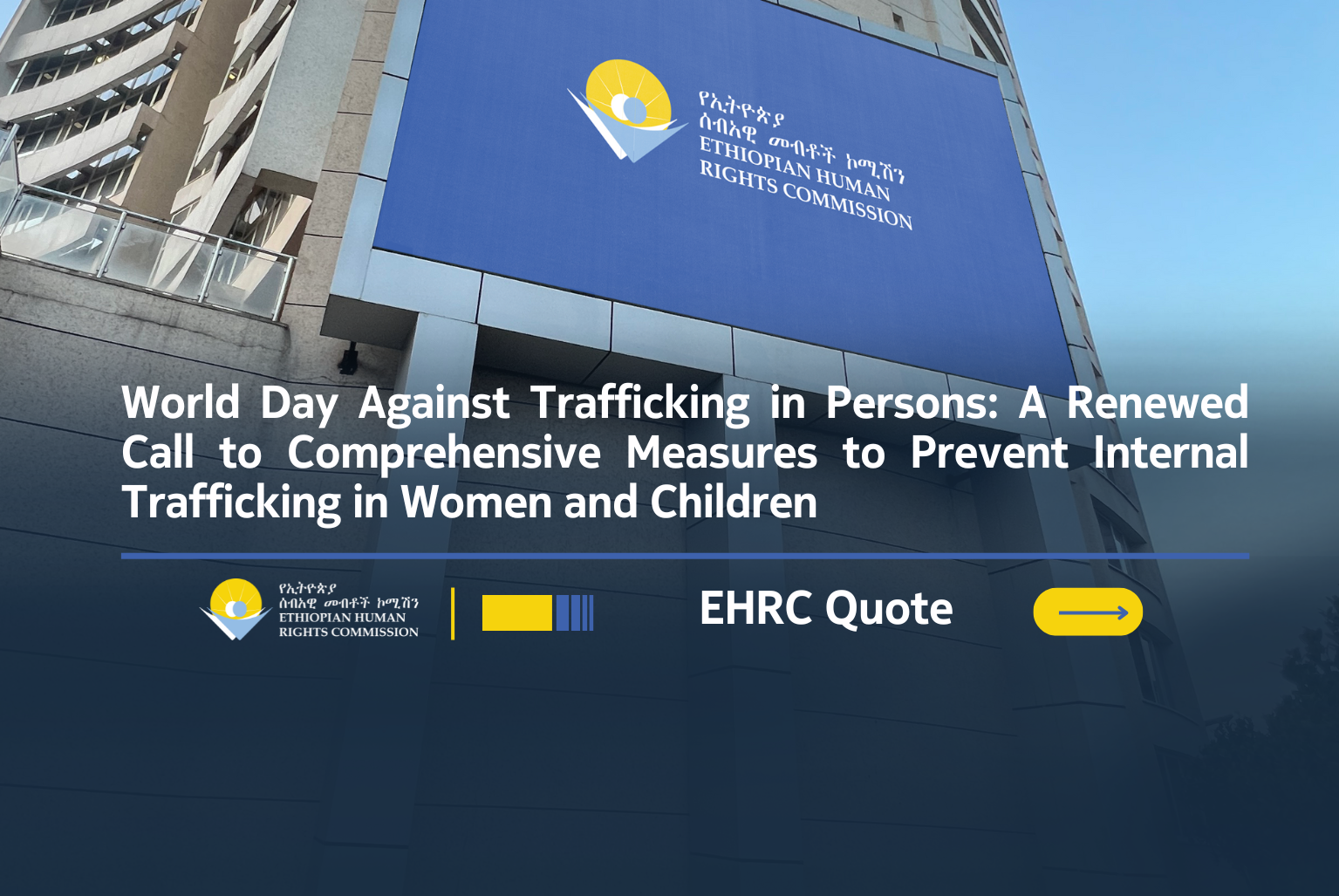In observance of the World Day Against Trafficking in Persons and Africa’s Women’s Day, the Ethiopian Human Rights Commission (EHRC) reiterates its call for implementation of comprehensive legal, political, administrative and social measures to effectively prevent and respond to internal trafficking in women and children in the country. While there are some efforts to address the trafficking in women and children, government initiatives related to prevention, prosecution, protection, rehabilitation, support programs, job opportunities, awareness creation and training are primarily focused on cross-border trafficking offenses and their victims.
Victims of internal trafficking are subjected to extreme levels of physical, sexual, and emotional abuse and violence. Internal trafficking in women involves their recruitment, transportation, and transfer within different parts of the country using coercion, fraud, deception and abuse of power for the purpose of exploitation. Efforts to combat trafficking in women and children should focus on addressing underlying factors and providing comprehensive support to vulnerable children and women. Recalling its monitoring report on internal trafficking in women and children, EHRC calls on relevant state authorities to take comprehensive measures to prevent and respond to internal trafficking in women and children. This includes establishing accountability and coordination systems, offering remedies for victims and providing comprehensive support and protection in line with international and regional human rights standards.
